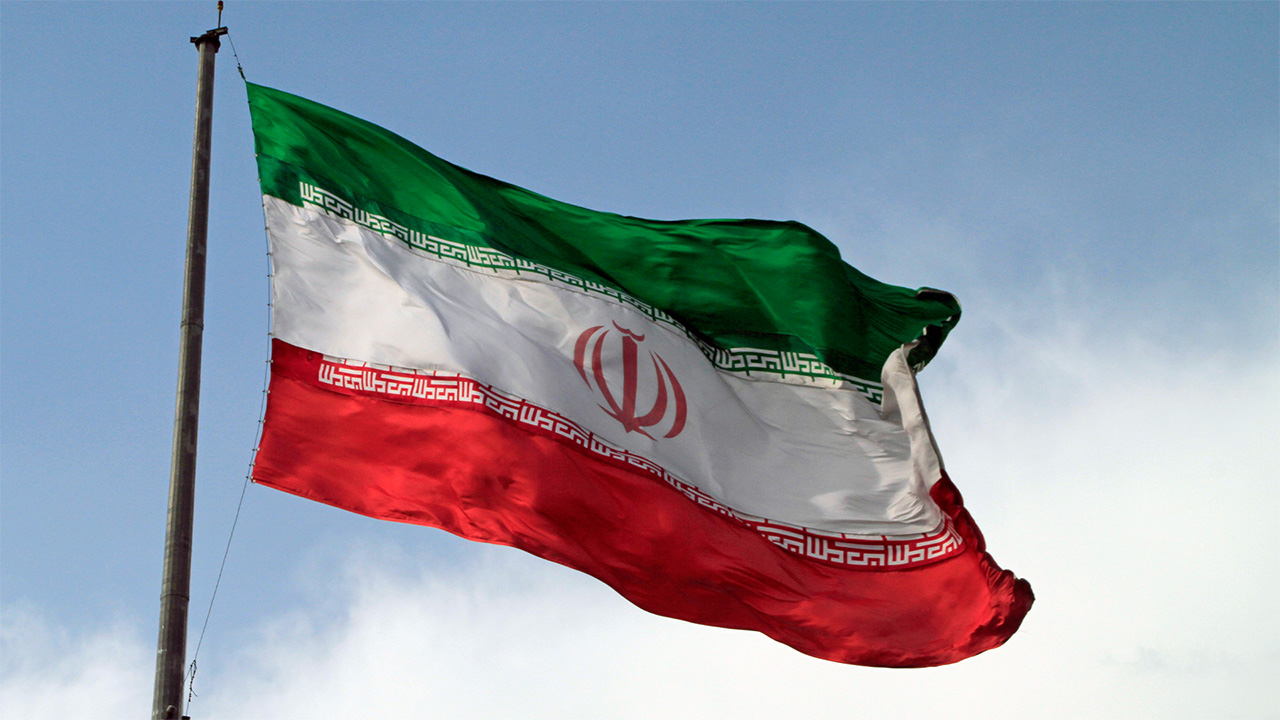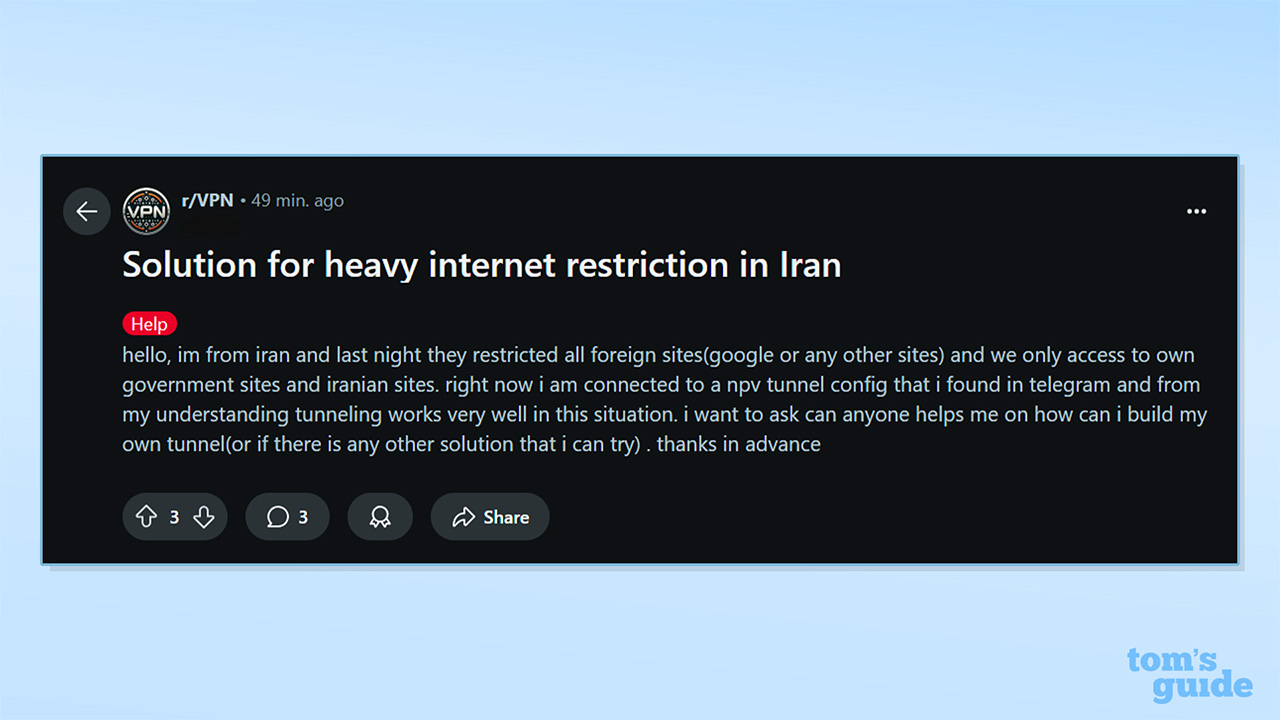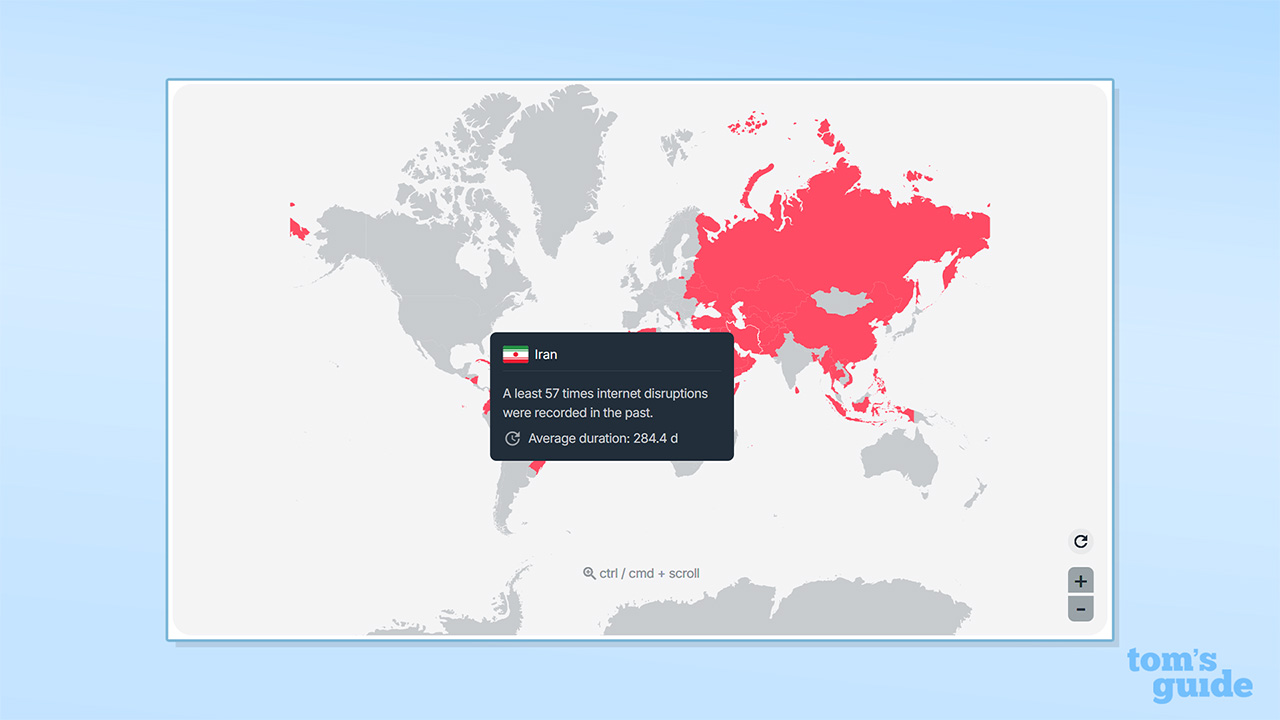Demand for VPNs in Iran increases by 700% as internet restrictions hit the country
Authorities imposed restrictions following Israeli strikes

Here at Tom’s Guide our expert editors are committed to bringing you the best news, reviews and guides to help you stay informed and ahead of the curve!
You are now subscribed
Your newsletter sign-up was successful
Want to add more newsletters?

Daily (Mon-Sun)
Tom's Guide Daily
Sign up to get the latest updates on all of your favorite content! From cutting-edge tech news and the hottest streaming buzz to unbeatable deals on the best products and in-depth reviews, we’ve got you covered.

Weekly on Thursday
Tom's AI Guide
Be AI savvy with your weekly newsletter summing up all the biggest AI news you need to know. Plus, analysis from our AI editor and tips on how to use the latest AI tools!

Weekly on Friday
Tom's iGuide
Unlock the vast world of Apple news straight to your inbox. With coverage on everything from exciting product launches to essential software updates, this is your go-to source for the latest updates on all the best Apple content.

Weekly on Monday
Tom's Streaming Guide
Our weekly newsletter is expertly crafted to immerse you in the world of streaming. Stay updated on the latest releases and our top recommendations across your favorite streaming platforms.
Join the club
Get full access to premium articles, exclusive features and a growing list of member rewards.
VPN usage in Iran has soared following the country's imposition of internet restrictions. Demand for the best VPNs began to increase on Friday, June 13, as missile strikes from Israel hit the country.
IranWire reported that the Communications Ministry approved the "temporary restrictions," and Iran's prosecutor general supposedly threatened social media users with legal action for posting disruptive content.
Iran has a long history of internet censorship and VPNs are largely banned in the country.
A 707% spike
Monitoring by Top10vpn.com recorded VPN demand peaking at 707% over the baseline, compared to the daily average over the previous 28 days.
Usage rose to 425% on June 13, when restrictions were first implemented, and then 530% the next day.
It hit 707% on June 15 and then dropped slightly to 623% on June 16. This is the latest available data but restrictions are still ongoing and Top10vpn.com expects this figure to rise.
Top10vpn.com says it analyzes a country's daily VPN search volume. It compares this to the average daily search volume for the previous days and weeks to identify spikes in demand.
A tweet by NetBlocks on June 18 said that Iran was "in the midst of a near-total national internet blackout." This came after partial disruptions throughout the week.
⚠️ Confirmed: Live network data show #Iran is now in the midst of a near-total national internet blackout; the incident follows a series of earlier partial disruptions and comes amid escalating military tensions with Israel after days of back-and-forth missile strikes 📉 pic.twitter.com/Iu598aIMRJJune 18, 2025
Authorities have cited Israel's use of the internet for military purposes as the reason for the shutdown. The actions of Iran's government will continue to impact Iranians at a time when access to the internet, communications, and information is crucial.
Many Iranians are now turning to VPNs to access the internet, despite the tools being banned in the country.
A Reddit user reported that on the night of June 18, Iran restricted all foreign internet sites. Only government and Iranian sites were reportedly able to be accessed.

Simon Migliano, Head of Research at Top10vpn.com, commented on the ongoing restrictions in Iran.
"Amid this period of intense turmoil, the Iranian government’s choice to tighten internet controls only deepens the hardship its citizens are already facing," he said.
"Cutting off access to vital digital lifelines, while people are worried about their homes, their safety, and their families, is not just repressive, it’s profoundly inhumane."
"It’s entirely understandable that we’re seeing such a massive surge in demand for VPNs inside Iran, as much as eight times above average."
"For Iranians, unrestricted access to information is essential right now."
We’re seeing such a massive surge in demand for VPNs inside Iran
Simon Migliano
"Whether it's communicating with loved ones, following rapidly-evolving events, or seeking help, tools like messaging apps, international news outlets, and social media are more than just conveniences, they’re necessities."
"So while the Iranian authorities may well succeed in blocking significant volumes of VPN traffic, they won't be able to block it all."
"They may be forced to constantly rotate through multiple VPNs, but the most determined citizens will be able to bypass the restrictions and get online."
Iranian censorship isn't new
Internet censorship in Iran isn't a new phenomenon, with the country having a long history of online blocking.
Surfshark monitors internet restrictions through its Internet Shutdown Tracker. It has recorded at least 57 cases of past internet disruption in Iran, with an average duration of 284 days.
Social media has been disrupted at least 7 times in the past, at an average of 2,307 days – Facebook, X (Twitter), YouTube, and Telegram are all currently being restricted according to Surfshark's tracker.

Despite their ban, and Iran having some of the world's strictest VPN laws, a December 2024 survey found that 80% of Iranians use a VPN.
Approximately 49% said they used free VPNs and 30% used a paid VPN service. For effective firewall and censorship bypassing, we'd recommend one of the best Iran VPNs.
But not every Iranian will be able to access a paid VPN service. If this is the case, then the best free VPNs will be a lifeline.
They don't have as many features as premium services, but they will protect your data with the highest levels of encryption and ensure you can access a free and open internet.
Proton VPN Free is one of those VPNs, and Proton VPN is dedicated to fighting internet repression. It has a host of anti-censorship features and users can even access Proton VPN Free without creating an account.
Many leading VPNs also offer free emergency VPNs to those in need – such as journalists, activists, or those living under authoritarian governments.
We test and review VPN services in the context of legal recreational uses. For example: 1. Accessing a service from another country (subject to the terms and conditions of that service). 2. Protecting your online security and strengthening your online privacy when abroad. We do not support or condone the illegal or malicious use of VPN services. Consuming pirated content that is paid-for is neither endorsed nor approved by Future Publishing.

George is a Staff Writer at Tom's Guide, covering VPN, privacy, and cybersecurity news. He is especially interested in digital rights and censorship, and its interplay with politics. Outside of work, George is passionate about music, Star Wars, and Karate.
 Club Benefits
Club Benefits










